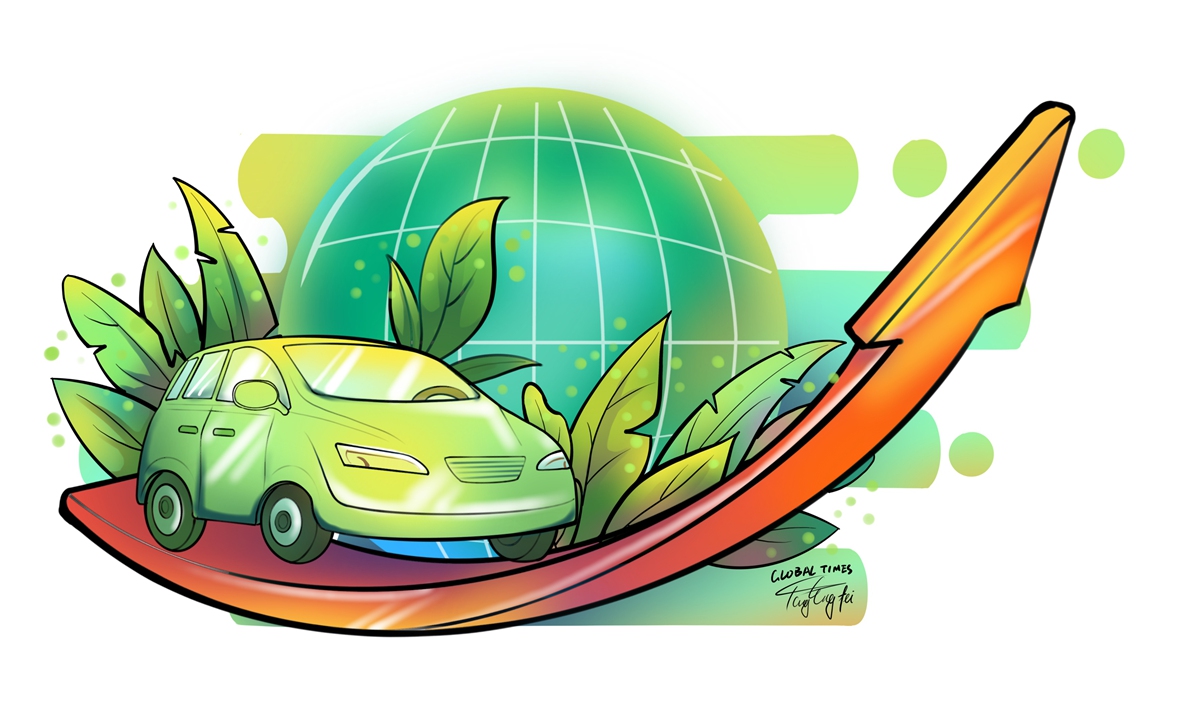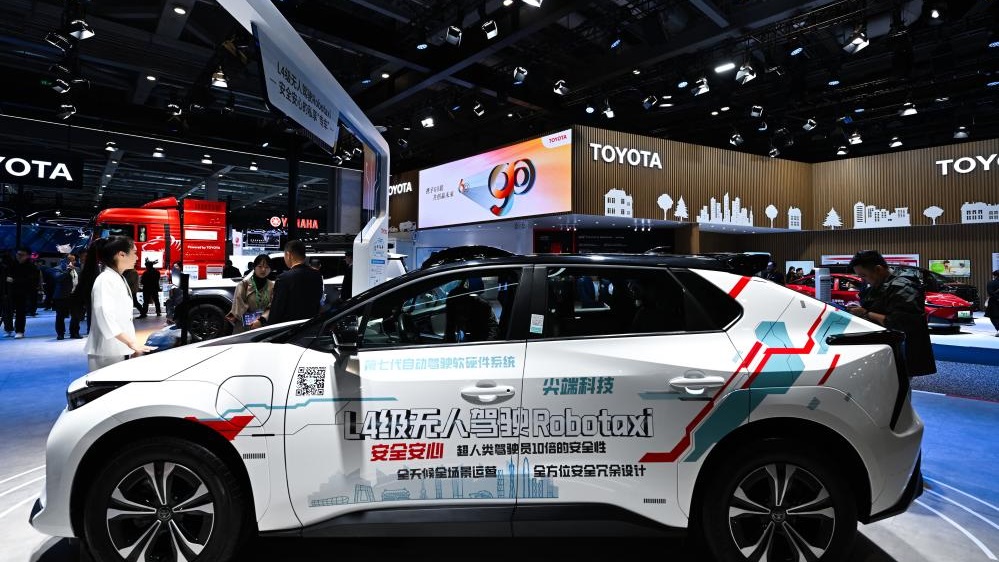Chinese EV makers invest in Africa to foster green growth, not avoid Western tariffs

(Illustration: Tang Tengfei/GT)
Africa is emerging as a key investment destination for Chinese electric vehicle (EV) makers seeking to go global. Egypt, in particular, is attracting significant interest due to its plan to localize automotive production, an expanding domestic market, competitive labor costs, and its key role as a transportation hub, according to the South China Morning Post (SCMP).
Chinese EV makers BAIC Group and Zeekr, Geely Auto's premium EV maker, have announced plans to enter Egypt - a key location for companies looking to tap into the Middle East and Africa, the SCMP reported on Sunday.
The investment of Chinese EV makers in the African market is not a passive response to protectionist tariff barriers in Western countries as claimed by some Western media outlets; rather, it is a natural choice based on the increasingly close economic ties and cooperation trends among countries in the Global South.
In particular, strengthening collaboration in the EV sector among Global South countries allows more developing countries to carry out mutually beneficial cooperation with China's booming EV industry and contributes to global efforts to tackle climate change challenges.
Protectionist tariffs have been imposed by Western countries on Chinese EVs, which poses challenges to their overseas development. But for some Chinese EV makers, it is not those tariffs that have driven their investment plans in Africa, but rather their long-standing commitment to developing countries.
Many Chinese EV makers launched investments in African countries according to their own plans and at their own pace. Chery, for instance, aims to open an assembly line in Kenya, a move that analysts said was likely planned well before the new additional EU tariffs on Chinese EVs. It's also unrelated to the recently announced delay in opening a Chery assembly plant in Spain, according to the SCMP.
China-Africa cooperation in the EV sector offers promising prospects, with potential benefits for economic development, sustainability, and technological advancement. China has already invested greatly in infrastructure development in Africa, including transportation and new-energy facilities, creating a solid foundation for China and Africa to strengthen cooperation in the EV sector.
The vast potential of the African market is undoubtedly an important factor attracting Chinese automotive companies. As the economies of African countries develop and the living standards of their people improve, the demand for vehicles will continue to grow. This provides more opportunities for collaboration for Chinese automotive enterprises.
Moreover, the shift toward EVs can help meet expanding demand in Africa while balancing the need to reduce carbon emissions. With urbanization and population growth, the need for efficient and eco-friendly transportation is increasing. In 2023, China's exports of new-energy vehicles to Africa saw a significant year-on-year increase of 291 percent, and exports of lithium batteries were up 109 percent.
The Egyptian market is witnessing remarkable growth in the number of EVs, with many Chinese-made EVs in the market. The number of EVs sold grew from the beginning of July 2021 until the end of June 2024, with BYD as the second most sold vehicle, according to data from the Egyptian Compulsory Motor Insurance Pool, according to Xinhua.
African countries are actively promoting the process of industrialization, and collaborating with Chinese EV makers will also benefit local economies and industrial development. China possesses advanced technology and rich market experience in developing EVs, as well as strong manufacturing capabilities and advantages in the industrial chain. Chinese EV companies can assist African countries in achieving their visions of localizing production and boosting related industries.
For instance, Egypt's Deputy Prime Minister for Industrial Development Kamel al-Wazir, who is also the industry and transport minister, was quoted by the SCMP as saying that the investment of Chinese EV companies is in line with the North African country's aim to become a regional industrial center and localize the car industry.
Cooperation between China and Africa in the field of EVs not only aligns with the long-term interests and economic development needs of both parties but also serves as an important measure to address climate change and achieve sustainable development. China-Africa cooperation is expected to inject new vitality into global green development and sustainable development.
Photos
Related Stories
- China, AU pledge to deepen strategic cooperation under FOCAC framework
- Charting China's rising EV charging facilities
- China, EU engage in intensive consultations on EV tariffs
- Chinese firm opens steel manufacturing plant in Zambia
- China's NEV sales set monthly record in October, boosted by policy support
Copyright © 2024 People's Daily Online. All Rights Reserved.









